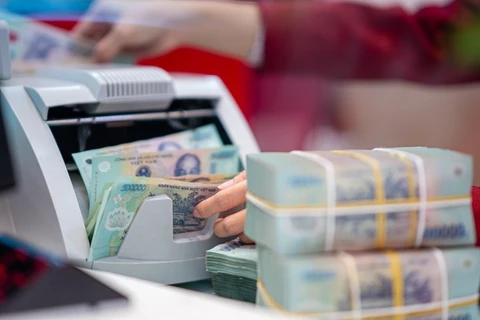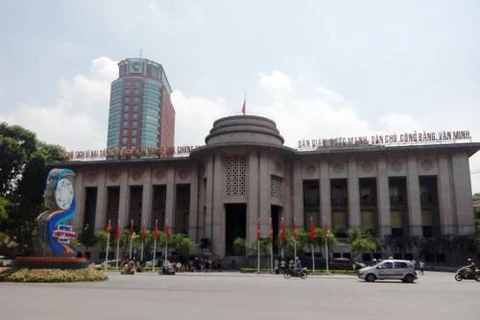Hanoi (VNA) – The State Bank of Vietnam (SBV) will not consider increasing policy interest rates and might extend debt rescheduling policies to support enterprises this year, said SBV Deputy Governor Dao Minh Tu said at a press conference on January 3.
Interest rates have dropped to the lowest level in the past 20 years. Commercial banks say that rates cannot be lower, but the central bank urges efforts to reduce costs to create room for supporting the economy, he said.
The central bank will manage rates in the direction of not increasing operating costs, and based on global economic development and major macro balances, he added.
Last year, the SBV cut policy intererst rates four times by 0.5-2 percentage points, resulting in reductions of around 2 percentage points in deposit and lending rates compared to the end of 2022.
As of the end of 2023, lending rates for prioritised sectors were reduced to below 4% per year and the average deposit rate was 3.5% per year. The average lending rate for new loans was 6.7%.
The credit growth rate was 13.5% in 2023, lower than the target of 14-15% but still positive in the context of economic difficulty, Tu said, adding the monetary market was kept stable while inflation was under control in 2023.
|The Vietnamese dong depreciated by 2%, a very low level compared to the depreciation of other currencies, by 12-17% of G7 member countries, for example.
Forecasting that the economy would continue struggling this year, the central bank will consider extending Circular 02 on debt rescheduling and retention of debt category to assist business in 2024, the SBV leader said.
The central bank also sets a credit growth target of 15% for the domestic banking system this year, he said, estimating that with such growth rate, around 2 quadrillion VND (81.8 billion USD) will be pumped into the economy in 2024./.
Interest rates have dropped to the lowest level in the past 20 years. Commercial banks say that rates cannot be lower, but the central bank urges efforts to reduce costs to create room for supporting the economy, he said.
The central bank will manage rates in the direction of not increasing operating costs, and based on global economic development and major macro balances, he added.
Last year, the SBV cut policy intererst rates four times by 0.5-2 percentage points, resulting in reductions of around 2 percentage points in deposit and lending rates compared to the end of 2022.
As of the end of 2023, lending rates for prioritised sectors were reduced to below 4% per year and the average deposit rate was 3.5% per year. The average lending rate for new loans was 6.7%.
The credit growth rate was 13.5% in 2023, lower than the target of 14-15% but still positive in the context of economic difficulty, Tu said, adding the monetary market was kept stable while inflation was under control in 2023.
|The Vietnamese dong depreciated by 2%, a very low level compared to the depreciation of other currencies, by 12-17% of G7 member countries, for example.
Forecasting that the economy would continue struggling this year, the central bank will consider extending Circular 02 on debt rescheduling and retention of debt category to assist business in 2024, the SBV leader said.
The central bank also sets a credit growth target of 15% for the domestic banking system this year, he said, estimating that with such growth rate, around 2 quadrillion VND (81.8 billion USD) will be pumped into the economy in 2024./.
VNA
























